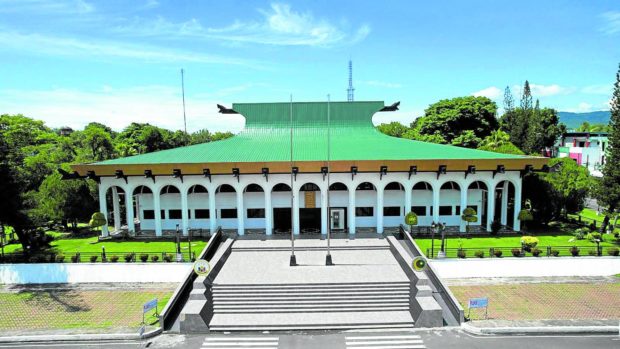BARMM has ‘very low’ death registration due to Islamic tradition – PSA

FILE PHOTO: This photo shows the Office of the Chief Minister Building in Cotabato City, the seat of the Bangsamoro Autonomous Region in Muslim Mindanao (BARMM) government. CONTRIBUTED PHOTO
MANILA, Philippines — The Bangsamoro Autonomous Region in Muslim Mindanao (BARRM) has a “very low” death registration due to the Islamic tradition that their dead must be buried within 24 hours.
While Muslims are exempted from following Presidential Decree No. 856 of 1975, the Philippine Statistics Authority (PSA) said such tradition “becomes an issue after the burial” since it means not all of the dead in the region are registered with the government.
Presidential Decree No. 856 of 1975 states that no bodies should be buried or cremated without an official death certificate, which is a primary requirement for a burial permit.

“In BARRM we observed that we have a very low death registration,” Marizza Grande, Assistant National Statistician of the PSA, said Monday during a hearing of the Senate committee on cultural communities and Muslim affairs.
Article continues after this advertisementREAD: Permanent validity of birth, death, marriage certificates bill lapses into law
Article continues after this advertisement“Actually in the current guidelines now, we recognize the Muslim tradition to bury within 24 hours, that’s why we did not impose that they need to have a burial permit.”
However, she added: “It becomes an issue after the burial because we noticed that we have a low death registration.”
Grande said only 42 percent of deaths in BARMM in 2021 were registered, citing PSA’s latest data. The 2021 census was nevertheless higher than the 32 percent who secured death certificates in 2020.
“Before the pandemic, the death registration was even below 20 percent,” she also noted.
READ: Lawmaker seeks dedicated cemeteries for Muslims
On the contrary, according to a PSA data obtained from its website, Metro Manila posted 100 percent death registration in 2021 including the 98.2 percent that were registered on time and 1.8 percent that were registered late.
The PSA said death registration shall be made in the office of the civil registrar of a city or municipality where the death occurred within 30 days from the time of a person’s passing.
Grande said death registrations are important for policymakers to address underlying issues in the healthcare system.